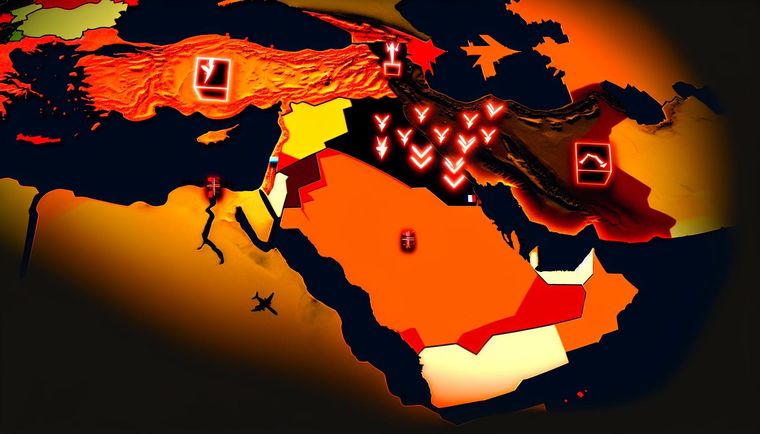Escalating Tensions: Recent Strikes and Responses in the Middle East

Recent developments in the Middle East exhibit a dangerous escalation of military actions, particularly concentrated around Israel, Lebanon, and Iran.
In the latest report from the region, the Israeli army claimed responsibility for the killing of Muhammad Abdullah, a leader of the militant group Islamic Jihad, in the West Bank. Abdullah was associated with several attacks against Israeli soldiers, highlighting the ongoing conflict in this volatile area. This incident occurred amid heightened tensions following Iranian threats aimed at Arab states that might assist Israel and the United States in potential retaliatory actions. Nations like Jordan, the UAE, Saudi Arabia, and Qatar have reportedly expressed their unwillingness to support US military operations against Iran, fearing ramifications on their own soil and assets.
The Iranian government has warned of devastating retaliatory strikes against any Arab state aiding US efforts in the region, raising alarms for the safety of US military infrastructure throughout the area.
Adding to the alarm, Israel has also been implicated in attacks against UN peacekeeping forces in Lebanon, specifically targeting the UNIFIL headquarters, resulting in injuries to at least two UN soldiers. Jean-Pierre Lacroix, head of the UN peacekeeping missions, has voiced serious concerns over the increasing danger to peacekeeping operations. This situation illustrates Israel's complex military operations against Hezbollah, a militant group operating within Lebanon, which has drawn criticism for allegedly misusing civilian infrastructure.
On the ground in Lebanon, civilian casualties are rising too, with reports indicating at least 22 deaths and over 117 injuries following Israeli airstrikes in Beirut. These attacks were reportedly aimed at striking high-profile Hezbollah figures, raising questions about the morality and legality of military tactics in urban settings where civilians are present.
Simultaneously, there are ongoing discussions between Israel and the US regarding potential retaliatory actions against Iran, indicating a shift in military strategy that could have far-reaching consequences. With this backdrop, nations like the US and France are calling for a bolstered Lebanese army, stressing the need to enhance local security forces instead of further weakening the state.
The scenario becomes more complex with accusations regarding the evacuation efforts of Israeli military, which have been condemned by Amnesty International for being insufficient and potentially misleading, suggesting that they may not absolve Israel of its obligations under international law regarding civilian protections.
As diplomatic channels remain fraught, the international community faces intensified scrutiny over these military engagements that jeopardize lives and stability within the region, emphasizing the precarious balance that characterizes Middle Eastern geopolitics today.
Related Sources:
